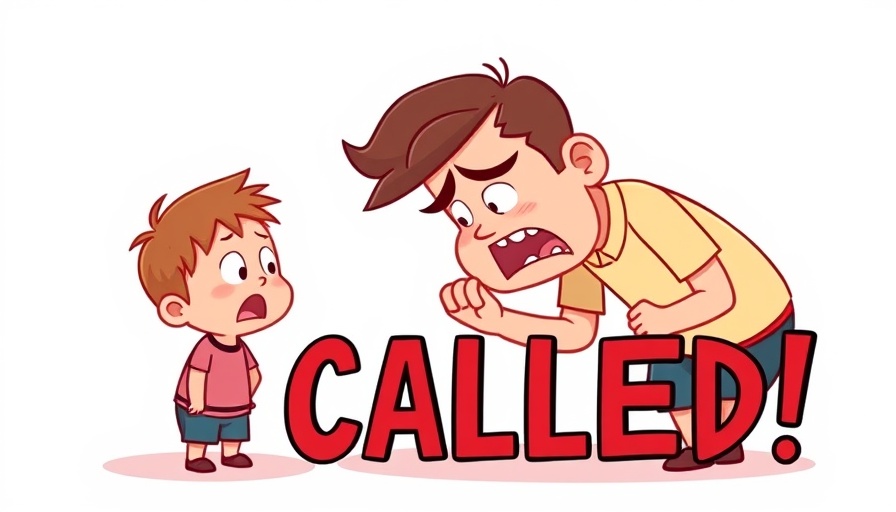
Understanding the Impact of an Abusive Parent
As parents, our primary goal is to nurture and support our children, yet some may inadvertently imprint harmful character traits stemming from their own unresolved issues. This article delves deeply into how experiences of emotional abuse can mold a child's character traits, often leaving lasting effects into adulthood. While it’s natural for parents to make mistakes, understanding these common traits can be vital to breaking the cycle of trauma and fostering healthier family dynamics.
The Legacy of Emotional Abuse: 10 Common Traits
Research indicates that children raised with abusive parents can develop a variety of detrimental traits, many of which persist well into adulthood. Here are ten notable characteristics that may reveal the residues of an unhealthy upbringing:
1. The Overly Compliant Adult: The Unseen Burden of People-Pleasing
Many individuals raised in emotionally abusive homes become people pleasers. They have learned early on to navigate their surroundings by prioritizing others’ needs over their own. This may stem from a fear of triggering emotional outbursts or a desire to gain conditional love. Understanding the roots of this compliance can lead to healthier boundaries and self-awareness.
2. Prioritizing Others: The Cost of Neglecting Self-Needs
Another common trait is the habit of disregarding one’s own needs. Children who grew up with demanding or narcissistic parents often internalize the message that their feelings and needs are unimportant. This can manifest as chronic exhaustion in adulthood, where the individual puts others' needs before their own, resulting in depletion and resentment. Fostering personal needs and desires can be a transformative step towards healing.
3. Self-Doubt: The Shadows of Gaslighting
Gaslighting—an insidious tactic used by some abusive parents—can instill a deep-seated self-doubt in their children. If you often second-guess your decisions or intuition, it may be a symptom of this childhood experience. The journey towards reclaiming confidence not only involves trusting oneself but also confronting the validity of past experiences.
4. The Lonely Heart: A Sense of Isolation
Feeling lonely even in a crowd is another legacy of emotional neglect. Abusive parents may dismiss their children’s feelings, leading to difficulties in forming emotional connections later in life. This deep isolation can be damaging, and recognizing this pattern is key to building meaningful relationships in adulthood.
5. Workaholism as a Coping Mechanism
Some individuals deal with their past by throwing themselves into work. They often equate their self-worth with achievements, a habit formed due to the relentless pursuit of parental approval. This workaholism can overshadow personal fulfillment and happiness, making recovery from this trait crucial for a balanced life.
6. Overreliance on Approval: Living for Validation
Children of abusive parents frequently seek validation to compensate for the love they did not receive. This need for approval can lead to unhealthy behaviors and choices cultivated to avoid rejection or criticism. Learning to value oneself independently of external approval can lead to significant personal growth.
7. Unhealthy Relationships: Repeating Patterns
Children often replicate their parents’ relationships, often finding themselves in unhealthy dynamics that mirror their childhood experiences. This pattern can perpetuate a cycle of trauma and requires conscious effort to break free and forge healthier connections.
8. Emotional Reaction: Anger and Outbursts
Often, individuals from abusive backgrounds may struggle to express their emotions healthily. Instead of articulating discomfort, anger may surface unexpectedly, revealing underlying pain. Developing emotional intelligence is key to managing these responses in a constructive way.
9. Difficulty with Boundaries: Lack of Personal Space
Growing up in a turbulent environment often blurs the lines of personal boundaries. Individuals may have trouble asserting what is acceptable in their relationships, causing further emotional upheaval. Learning to establish and respect one’s boundaries can empower healthier interactions.
10. Trust Issues: An Ever-Present Barrier
Finally, the lack of safety experienced as a child leads to difficulties trusting others. Distrust can hinder relationships and individual growth. However, acknowledging this barrier is the first step toward developing trust in healthier and more fulfilling ways.
Moving Forward: A Path to Healing
Identifying these traits is not meant to place blame but to foster awareness. Understanding that you may carry these traits does not define who you are. Instead, it offers a footing toward creating a healthier mindset for yourself and your family. Seeking therapy, practicing self-compassion, and educating oneself can be transformative steps toward reclaiming your identity and breaking the cycle of abuse.
Engage With the Community: Share Your Journey
If you recognize any of these traits in yourself, remember that you're not alone. Many individuals share similar experiences, and connecting with them can pave the way for healing. Consider joining forums or support groups that resonate with your journey. Sharing stories can provide insight, support, and strength. Together, we can build a community that promotes recovery and emotional well-being.
If you found this article compelling and insightful, consider sharing it with someone who might benefit from understanding these characteristics. Awareness is the first step in the recovery process, and together we can pave the way for a healthier future.
 Add Row
Add Row  Add
Add 




 Add Row
Add Row  Add
Add 

Write A Comment